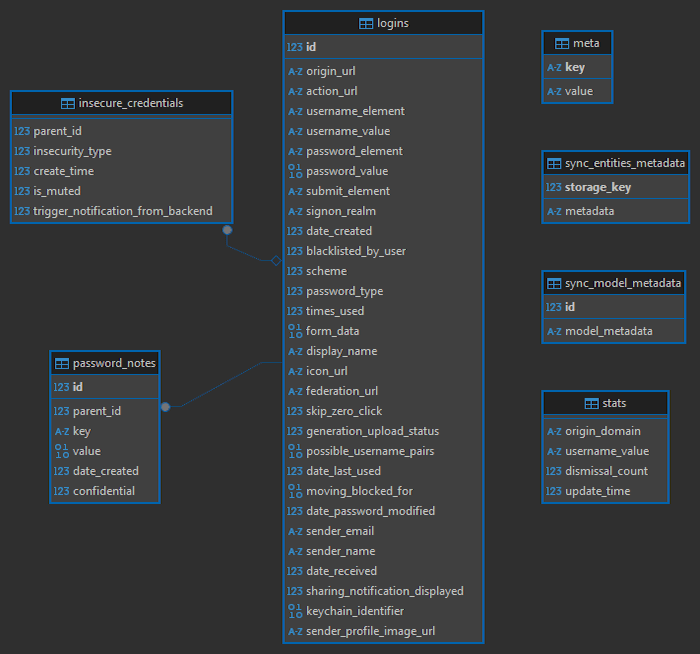Are Passwords Stored in Chrome Encrypted?
This site utilizes Google Analytics, Google AdSense, as well as participates in affiliate partnerships with various companies including Amazon. Please view the privacy policy for more details.
Short answer: yes. Sorry, Mr. Betteridge.
But I’m curious, and although I searched the Internet and found this answer on Stack Exchange, I wanted to look myself.
First question - where are the passwords stored? The easy answer is in settings, over at chrome://password-manager/passwords. You can see your passwords here in plaintext, but you have to (at least I hope you have to, I know I do) enter your Windows PIN or other credential to see them.
But they got to be stored somewhere else. And hopefully that “somewhere else” doesn’t store them in plaintext format, does it?
That above Stack Exchange link took me to an interesting bit of Python code on GitHub - namely chrome_decrypt.py. Lines 6 - 11 give me a hint on where the login data is stored:
try:
path = sys.argv[1]
except IndexError:
for w in os.walk(os.getenv('USERPROFILE')):
if 'Chrome' in w[1]:
path = str(w[0]) + r'\Chrome\User Data\Default\Login Data'
Digging through my system, I found the Login Data file in $home\AppData\Local\BraveSoftware\Brave-Browser\User Data\Default\Login Data (I use Brave, a fork of Chrome). I opened that file in a text editor and… Well, a bunch of binary data. But the file did start with SQLite format 3. Ah, a SQLite file!
I guess I could’ve looked at the Python file and noticed it loaded the file using SQLite…
Anyway, my current go-to SQL Client is DBeaver, which supports SQLite. So I tried to open that Login Data file, but when I tried to view the tables, I only got the following error: [SQLITE_BUSY] The database file is locked.
Hmmm, it seems that the file itself was locked because my browser was currently using it. So I made a copy to another directory, and was able to open the file and view all the tables and their columns:

Most interestingly, the logins table has columns action_url, username_value, password_value. You can see the chrome_decrypt.py script querying those very columns:
SELECT action_url, username_value, password_value FROM logins
…So is that password_value plaintext? Nope, it’s not even text. action_url and username_value are VARCHAR (“text”) - and I can read them fine, but password_value is a BLOB. Binary data.
I did some further digging, and it turns out this password_value is encrypted using Windows’ Data Protection API. It can’t be decrypted without knowing my Windows credentials.
Finally, for fun, I ran my Login Data SQLite file through the chrome_decrypt.py Python script. It wasn’t able to decrypt the data - which is a good thing!
Leave a Reply
